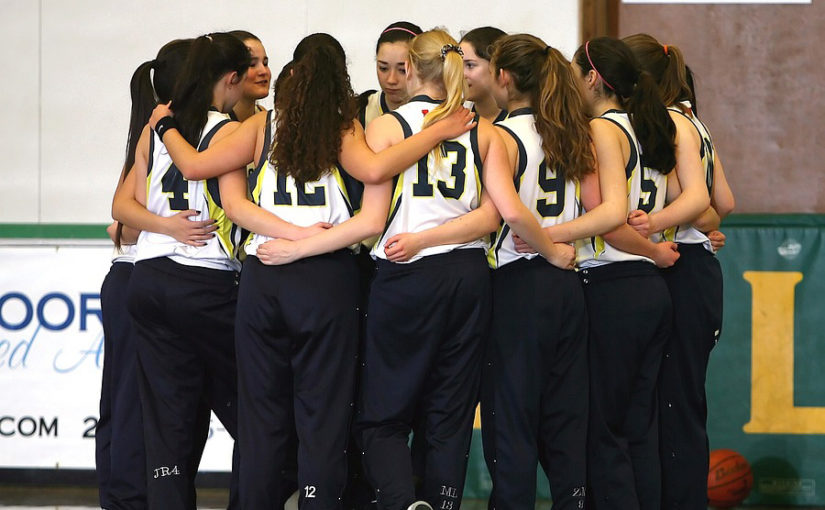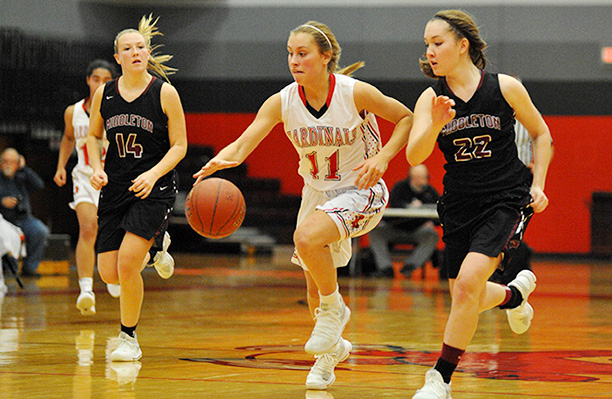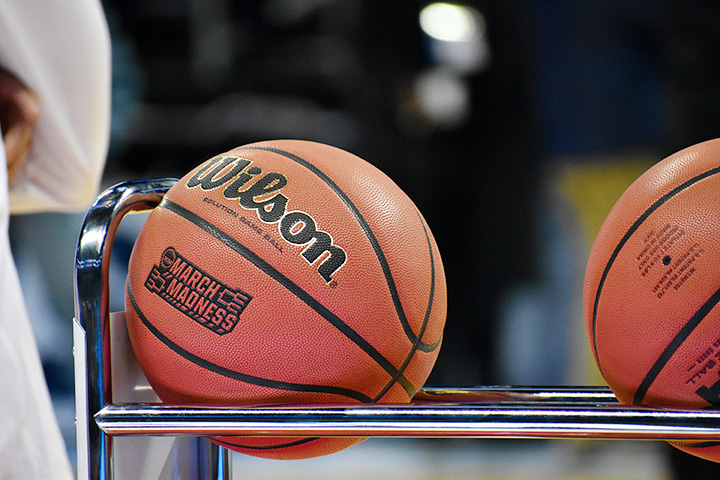A.D.ministration: Sportsmanship starts with the A.D.
One of the basic aspects or fundamental elements of education-based athletics is sportsmanship. Positive, respectful behavior is expected from athletes, coaches, and fans, and this expectation is clearly stated at the beginning of all National Federation of State Association rule books. And all of the efforts and responsibilities start with the athletic administrator at each school.
Did that catch your attention? It should, because if you don’t establish, lead and enforce the standards, no one else will. It all starts with you!
 The first step is to establish specific, comprehensive standards, and minor variants may have to be included to cover various sports and venues. It would be a good practical approach to create individual documents covering each sport in order to include all the special situations that may be involved so that you can limit as many loopholes as possible.
The first step is to establish specific, comprehensive standards, and minor variants may have to be included to cover various sports and venues. It would be a good practical approach to create individual documents covering each sport in order to include all the special situations that may be involved so that you can limit as many loopholes as possible.
What are some basic expectations or elements that you should normally include? The following should help you get started.
- Please do not harass or disrespect officials
- Using foul, inappropriate, or hateful language is not to be tolerated
- Cheer positively for your teams and not against or hoping that your opponent fails
- Show respect for the players and coaches of both teams, and to the officials and the fans of our opponents
- Use the Golden Rule and treat others as you would like or hope to be treated
- Follow the direction of the cheerleaders, and do not create or lead your own cheers which could be inappropriate and in poor taste
These expectations are not meant to be an all-inclusive list, but merely a starting point to get you thinking. And, definitely, you should add anything that is specifically encountered and pertains to your school, venues, and environment.
After establishing your expectations and standards, you have to communicate them. They won’t do any good if your athletes, coaches, and fans don’t know about them and why it is vitally important to exhibit good sportsmanship. And it would be a great practical idea to start your efforts by providing a good, operational definition of the concept of sportsmanship.
It is always wise to use as many mediums and vehicles as possible to share your sportsmanship expectations. This is done in order to reach all the individuals associated with your program. Depending upon what is available at your school, you might try the following:
- Review and share a copy of your sportsmanship expectations at your pre-season parent meetings, in the organizational meetings of your coaching staff prior to each season, and at any other similar function.
- Post your expectations on your webpage, Facebook, and other social media platforms.
- Keep a copy for easy distribution at all of your various venues.
- Send a copy via an email attachment to the opponent’s athletic administrator a week prior to a scheduled contest. In your message, request that you would appreciate it if he or she would send your expectations to their team’s parents.
- Have your public address announcer read the expectations for the specific venue in which the contest is being played.
After communicating your expectations and standards with all of the constituents of your program and the fans from visiting schools, there is one more vital function. Occasionally, in spite of all of your great proactive steps, there may be an isolated problem at a contest. You, as the athletic administrator, have to address incidents to ensure compliance, and to hold everyone accountable.
Confronting an uncooperative, negative, and misguided individual is never easy, but it has to be done. And if you don’t, who will? The answer is no one. As the athletic administrator, you are ultimately responsible for the sportsmanship and maintaining the proper decorum before, during, and after all events.
While you want and always need to be polite, you also have to be clear, direct, and firm. How should you approach and deal with a wayward fan? The following should help:
- Quietly walk up to the offender, sit down next to him or her, and request that this individual joins you – sitting down that is. The reason that you take this approach is that by standing, particularly if any loud heated words are exchanged, this interaction can be seen by others and some may come to the aid of this misguided person. Always try to keep the situation as calm and low-key as possible.
- Review your sportsmanship expectations with the individual who caused the problem, and hand them a copy if at all possible. Clearly state that his or her actions were out of line, and will not be tolerated. Then follow up by outlining what will occur if there is another incident, which will involve being asked to leave the venue.
- Thank the offender for listening. Always express hope that they understand your message and that there will be no further problems.
- Keep an eye on this individual or group of fans. If the incident occurs again, tell your off-duty police officers to watch as you go up and inform the offender that he, she or they have to leave. This security personnel is in position only if you need assistance.
- Fill out a post-game form or jot down what happened after the game, and file this document. It is vitally important to have this information in the event that there is ever another or similar problem in the future. Documentation and reports become important references if you ever have to take the final step of banning a fan from future attendance.
» ALSO SEE: Qualities of Level I athletic programs
Sportsmanship is a fundamental aspect of education-based athletics, and it can only be accomplished by establishing standards, ensuring compliance and, holding everyone accountable. These steps create a positive, respectful, and supportive culture for your school.
And ultimately, you as the athletic administrator are responsible. Additional valuable and helpful ideas for creating a positive sportsmanship culture can be found in Leading an Education-Based Athletic Program.





